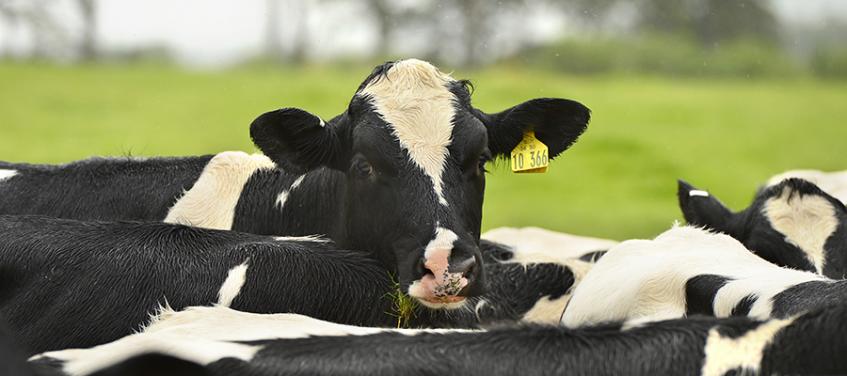Genome editing could remove deleterious gene variants and further improve animal health and performance.
May 29, 2019

Deleterious variants occur when there are errors in DNA replication that disrupt the function of a gene, and such errors are frequent enough that all organisms carry mildly deleterious variants, according to The Roslin Institute in Scotland.
These errors may be particularly relevant to the livestock industries because of relatively small population sizes and inbreeding.
Future breeding strategies that select against deleterious variants may help improve fitness of livestock populations, the institute said, and techniques to edit the genetic makeup — known as genome editing — to remove those variants may improve it even further, computer simulations suggest.
"We tested selection against deleterious load as well as a genome editing strategy we call RAGE (removal of alleles by genome editing) in simulated livestock populations. Our computer simulations suggest that genetic selection could improve fitness, and genome editing has the potential to improve it even more," Roslin Institute researcher Dr. Martin Johnsson said.
Historically, it has not been possible to observe deleterious variants directly, but as genome sequencing becomes cheaper and new bioinformatics methods are developed, it is now possible to sequence the entire genome of livestock and detect variants that are likely to be deleterious, the researchers said.
Roslin Institute chair of animal breeding John Hickey added, "Our simulations provide useful insights for future breeding strategies; however, for these strategies to be effective, it is important that detection of deleterious variants is accurate, and genome editing of more than one variant per animal would need to become possible without damaging side effects."
The study, which was funded by the U.K.'s Biotechnology & Biological Sciences Research Council, was published in the journal Genetics Selection Evolution.
Source: The Roslin Institute, which is solely responsible for the information provided and is wholly owned by the source. Informa Business Media and all its subsidiaries are not responsible for any of the content contained in this information asset.
You May Also Like
.png?width=300&auto=webp&quality=80&disable=upscale)


